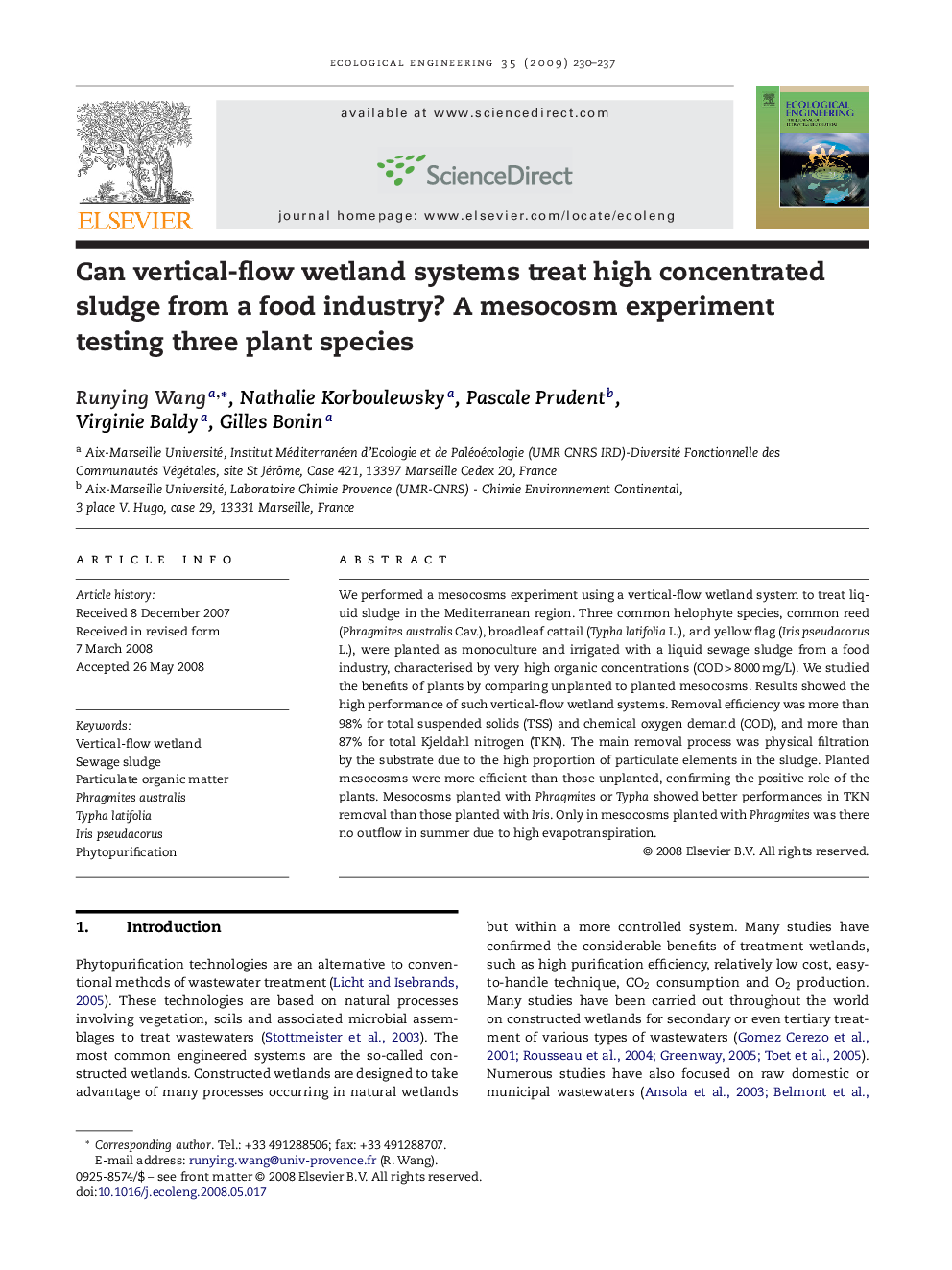| کد مقاله | کد نشریه | سال انتشار | مقاله انگلیسی | نسخه تمام متن |
|---|---|---|---|---|
| 4391022 | 1305206 | 2009 | 8 صفحه PDF | دانلود رایگان |

We performed a mesocosms experiment using a vertical-flow wetland system to treat liquid sludge in the Mediterranean region. Three common helophyte species, common reed (Phragmites australis Cav.), broadleaf cattail (Typha latifolia L.), and yellow flag (Iris pseudacorus L.), were planted as monoculture and irrigated with a liquid sewage sludge from a food industry, characterised by very high organic concentrations (COD > 8000 mg/L). We studied the benefits of plants by comparing unplanted to planted mesocosms. Results showed the high performance of such vertical-flow wetland systems. Removal efficiency was more than 98% for total suspended solids (TSS) and chemical oxygen demand (COD), and more than 87% for total Kjeldahl nitrogen (TKN). The main removal process was physical filtration by the substrate due to the high proportion of particulate elements in the sludge. Planted mesocosms were more efficient than those unplanted, confirming the positive role of the plants. Mesocosms planted with Phragmites or Typha showed better performances in TKN removal than those planted with Iris. Only in mesocosms planted with Phragmites was there no outflow in summer due to high evapotranspiration.
Journal: Ecological Engineering - Volume 35, Issue 2, 9 February 2009, Pages 230–237